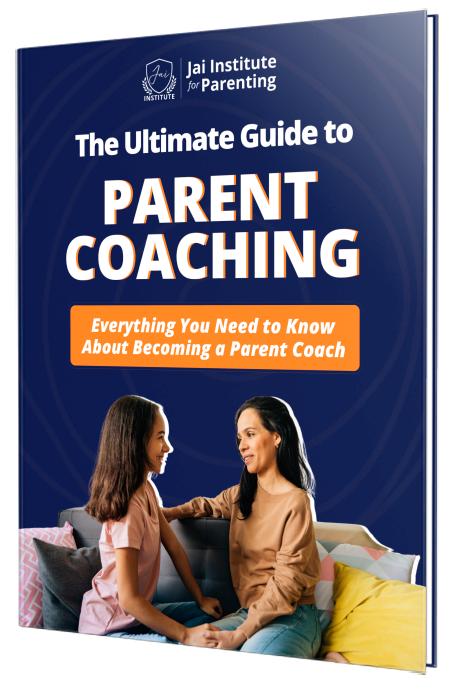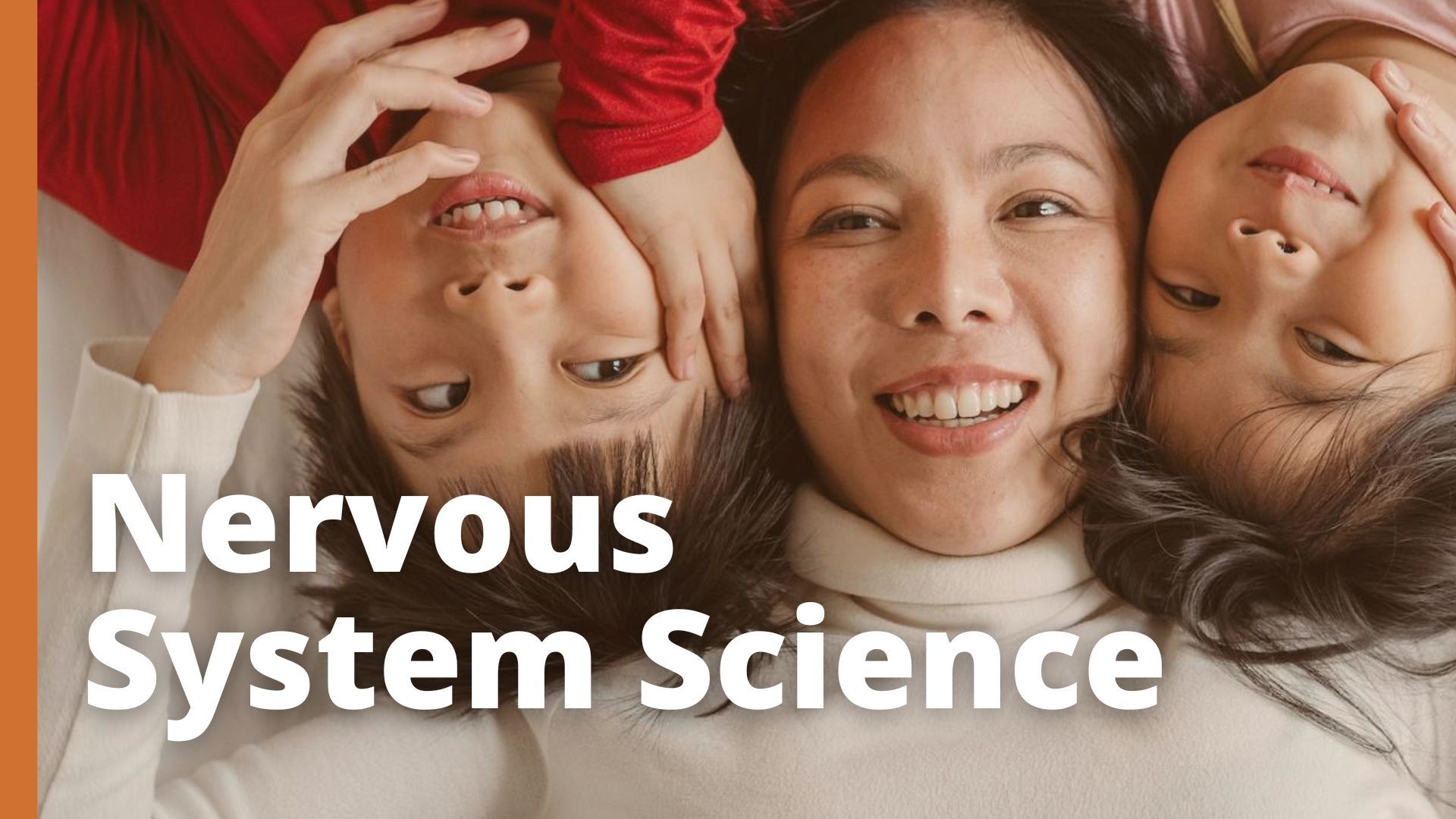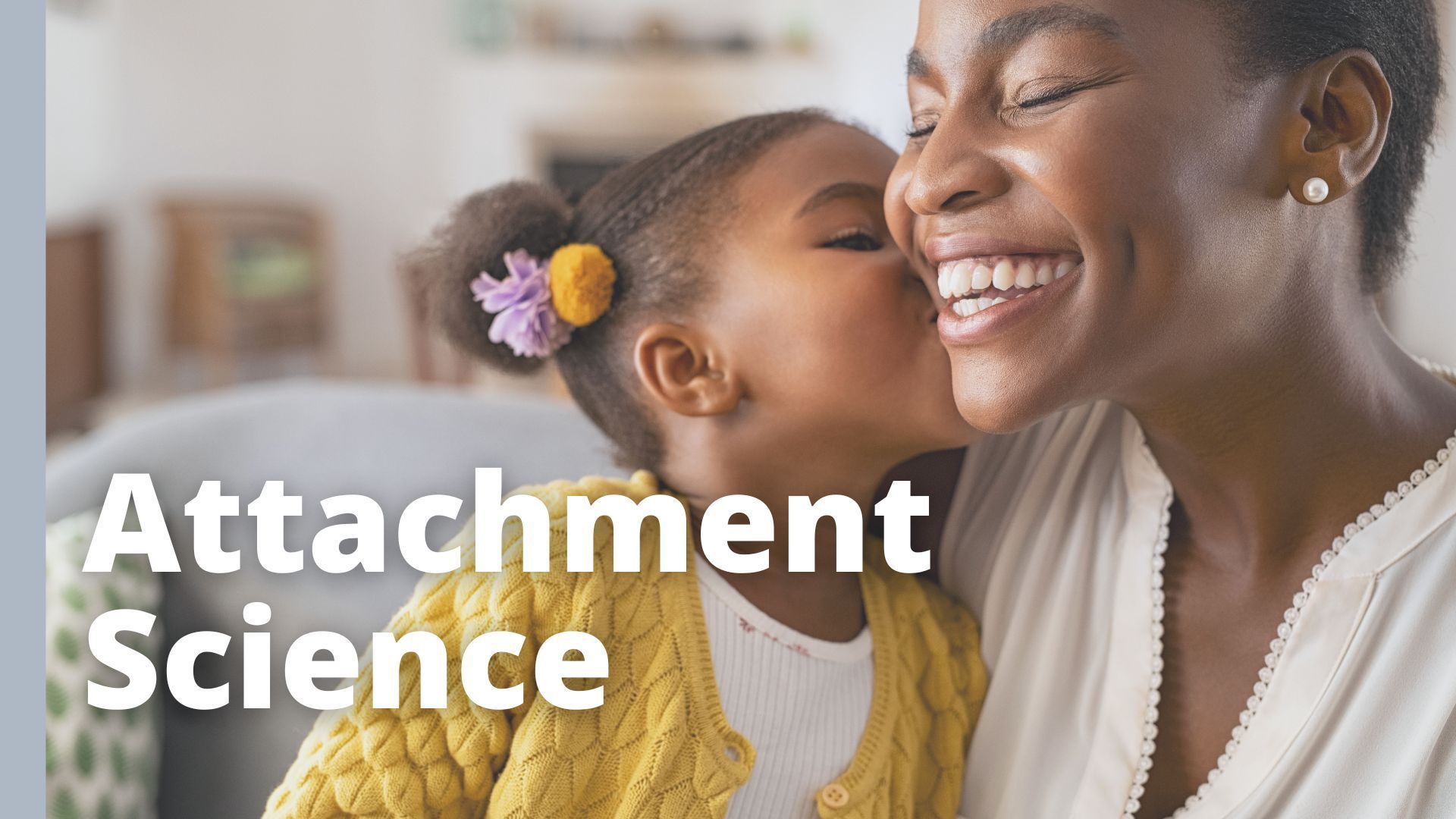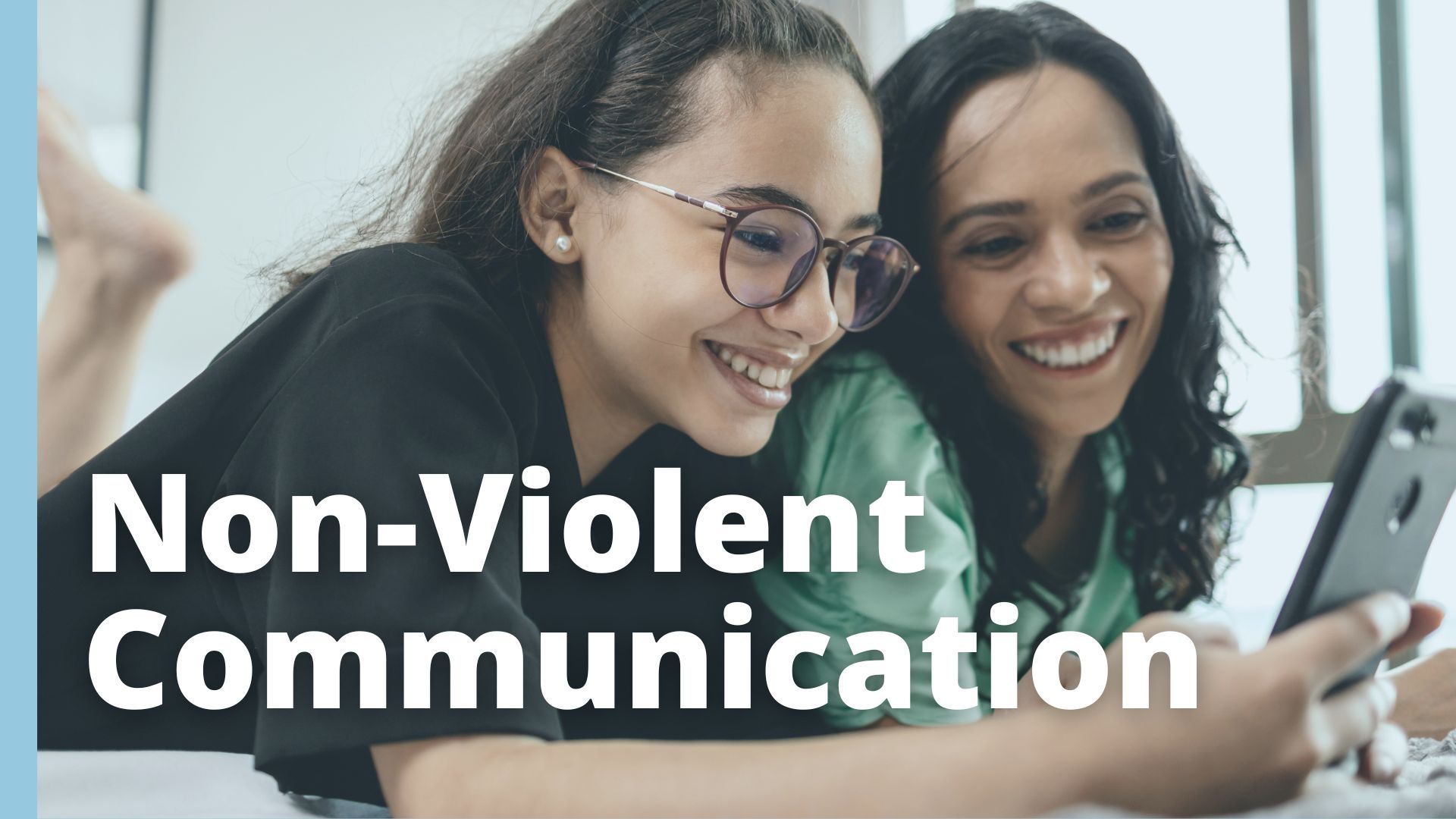Mindsight & Brain Science
Coaching Mindsight AND Brain Science to Parents
At the Jai Institute for Parenting, we believe that transformation begins with understanding, and nowhere is that more powerful than in the intersection of mindsight and brain science.
This isn’t about behavior management. It’s about rewiring patterns of perception, regulation, and relationship so that parents and children alike can flourish.
We train our coaches to help parents see… not just their children’s behavior, but the emotional and neurological roots beneath it.
With this insight, families can shift from reactivity to intentionality, from fear to safety,
and from disconnection to deep, attuned connection.
What is Mindsight & Brain Science in Parenting?
Understanding Mindsight: A Framework for Self-Awareness
Mindsight, a term coined by Dr. Daniel Siegel, refers to the ability to perceive the mind, our own and another’s, with curiosity, openness, and compassion. It’s the practice of seeing beneath the surface of behavior to the feelings, needs, beliefs, and nervous system states driving it.
In parenting, mindsight is a radical shift. Instead of labeling a child as “defiant,” a parent might wonder:
What unmet need is my child trying to communicate? What belief or fear might be driving their behavior?
This shift from judgment to curiosity transforms discipline into connection and empowers both parent and child to co-create emotional safety.
Mindsight is also internal. Parents begin to recognize their own limiting beliefs, inherited fears, and reactive patterns not as failures, but as invitations to grow. As one coach puts it, “When parents learn to see themselves with the same compassion they long to offer their child, everything changes.”
The Neuroscience of Parenting
Parenting literally shapes the brain. Every interaction wires neural pathways in both parent and child. The nervous system constantly scans for cues of safety or threat: subtle tone shifts, facial expressions, body language. These strongly influence emotional regulation and relational patterns.
The brain develops in a hierarchy:
- The “low brain” (brainstem) governs survival responses—fight, flight, freeze—and begins developing at birth.
- The “middle brain” (limbic system) processes emotions and begins maturing around age three. It needs consistent co-regulation to develop well.
- The “upper brain” (prefrontal cortex) handles reasoning, empathy, impulse control, and decision-making. This region develops slowly—from early childhood into the mid-20s.
Understanding this trajectory is essential. When parents expect a five-year-old to regulate like a teenager or a twelve-year-old to understand consequences like an adult, stress escalates, and both parent and child feel like they’re failing. Neuroscience empowers parents to replace unrealistic expectations with compassion and set boundaries that are developmentally aligned.
Building Stronger Parent-Child Connections
Attachment grows through attunement. When a child feels seen, heard, and understood, not just for what they do but for who they are, they develop a secure sense of self.
This is more than an emotional ideal; it’s a neurological foundation for resilience, emotional intelligence, and future relational health.
Many parents come to coaching feeling stuck in patterns of yelling, bribing, or withdrawing. What they often discover is that those behaviors are rooted not in their child’s misbehavior, but in their own unmet inner needs.
By helping parents understand their nervous system triggers and guiding them to regulate before reacting, we teach a new way of being with their child and with themselves.
Promoting Emotional and Cognitive Development
Stress is not just a feeling, it’s a state of the nervous system. Chronic stress, especially in early childhood, inhibits development in key brain regions like the hippocampus (memory), amygdala (emotional processing), and prefrontal cortex (executive functioning).
When parents respond with attuned presence instead of punishment or fear, they provide the kind of environment in which the brain can grow. Empathy builds neural wiring for empathy. Co-regulation fosters self-regulation. Mindsight opens the door to growth in both the child’s brain and the parent’s.
This approach doesn’t just benefit the individual family. It contributes to breaking generational cycles of disconnection, criticism, and emotional suppression. Children raised with brain-based parenting are more likely to become adults who lead with compassion and insight.
How the Jai Institute Trains Coaches in Mindsight & Brain Science
Key Topics Covered in the Curriculum
Mindsight and brain science are foundational to the Jai Institute’s coaching methodology. Throughout the certification program, coaches are not only introduced to the research behind these concepts. They're trained to embody, apply, and teach them in ways that help families transform from the inside out.
Here are five of the core topics explored in depth:
1) The Architecture and Development of the Brain from Infancy through Adulthood
What it is: Coaches study how the brain develops in stages, from the instinctive, survival-based lower brain in infancy to the emotionally rich middle brain and, eventually, to the reasoning and reflective prefrontal cortex that continues developing into the mid-20s. They explore what capacities emerge at each stage, such as impulse control, empathy, and executive functioning, and what kinds of experiences are necessary to support healthy neurological growth.
Why it matters: Many parents expect children to behave in ways their brains simply aren’t equipped for like expecting a four-year-old to consistently share or a teenager to always make logical decisions under stress. This mismatch creates chronic frustration, unnecessary power struggles, and a sense of failure on both sides.
When parents understand the timeline of brain development, they can meet their children with realistic expectations, greater patience, and the kinds of support that actually promote growth instead of hinder it.
2) The Science of Co-Regulation and Nervous System Safety
What it is: Co-regulation is the process by which one person’s calm presence helps another person regulate their nervous system. Coaches learn how the nervous system is constantly scanning for safety, how stress responses like fight, flight, and freeze manifest in both adults and children, and how regulation requires connection, not correction. They also learn how to assess when a parent or child is dysregulated and how to guide them back to calm.
Why it matters:
No learning or emotional repair can happen when a person is in a stress response. Children especially are dependent on the adults around them to help restore safety in their bodies before they can process, reflect, or change behavior. Many parenting approaches focus on behavior management without addressing the physiological state underneath. Coaching through the lens of nervous system science ensures that parents understand the biology of regulation and that they develop the capacity to model it for their children, day after day.
3) The Impact of Early Attachment and Trauma on Long-Term Behavior
What it is: Coaches explore how early relational experiences, especially those involving unmet emotional needs or chronic stress, shape a person’s internal working model of relationships. They learn about attachment theory, including secure, anxious, avoidant, and disorganized styles, and how unresolved childhood experiences can silently drive parenting reactions. Trauma is examined not only as a singular event, but as any experience that overwhelms a child’s capacity to cope and interrupts their sense of safety.
Why it matters:
Many parents unconsciously re-enact or react to the pain of their past in their current parenting. They may become overly permissive to avoid becoming like a controlling parent, or rigid and critical because they were never given structure themselves. These patterns create invisible blocks to connection and can pass unhealed wounds down through generations. By understanding how attachment and trauma shape behavior, coaches help parents make sense of their own history and reclaim their ability to parent with intention rather than reaction.
4) Limiting Beliefs and Subconscious Patterning
What it is: This topic delves into the subconscious mind and the belief systems formed early in life, often before the age of seven. Coaches learn how the brain internalizes meaning from repeated experiences—especially emotionally charged ones—and forms protective beliefs like “I’m not enough,” “I have to be perfect,” or “My needs don’t matter.” These beliefs live beneath conscious awareness, shaping thoughts, emotions, behaviors, and parenting choices.
Why it matters: A parent’s internal narrative profoundly affects how they interpret their child’s behavior. A parent who believes they’re “failing” may interpret normal toddler defiance as proof of inadequacy. A parent who fears rejection may over-control to keep their child close. By uncovering and compassionately challenging limiting beliefs, coaches help parents create new neural pathways—ones that support healthier self-concepts and more connected, confident parenting.
5) The Influence of Conditioned Parenting Scripts and Cultural Narratives
What it is: Coaches are trained to help parents identify the inherited messages and societal norms that unconsciously influence how they raise their children. These scripts may come from family, culture, religion, or media and include ideas like “children should be seen and not heard,” “good parents never lose their temper,” or “boys don’t cry.” Coaches learn how to help parents examine these beliefs and decide which ones align with their values and which ones they’re ready to release.
Why it matters: Parenting doesn't happen in a vacuum. It happens within the context of deeply ingrained cultural narratives, many of which perpetuate shame, disconnection, and unrealistic expectations. When parents unconsciously adopt these narratives, they often parent from fear, guilt, or performance. By becoming aware of these influences, parents can begin to consciously choose a path of alignment, one that honors their child’s individuality and their own truth.
Through our proprietary 5-D Coaching Framework, coaches help clients move from unconscious reaction to conscious leadership. This involves unpacking emotional triggers, naming belief systems, restoring inner safety, and expanding a parent’s capacity to choose differently.
Practical Tools for Brain-Based Parenting Coaching
Jai’s approach to coaching is not just theoretical, it’s deeply practical. Certified coaches are trained to offer accessible, transformative tools that parents can immediately apply in their everyday interactions. These tools are rooted in neuroscience and attachment theory, and they work because they honor both the parent’s and the child’s internal experience.
Here are a few core tools taught in the curriculum:
1) The Root-to-Bloom Process
What it is:
The Root-to-Bloom Process helps parents look beneath the surface of their child’s behavior (the “bloom”) to uncover the deeper emotional and neurological roots. This includes the child’s feelings, unmet needs, beliefs, thoughts, developmental stage, nervous system state, and the context of the situation.
Why it matters:
Parents are often conditioned to react to behavior as if it were the whole story, praising or punishing the “bloom” without understanding the “roots.” This tool empowers parents to become investigators rather than enforcers. It builds empathy, increases understanding, and moves families out of power struggles and into connection. Over time, this practice rewires the parent’s brain for compassion and gives the child what they need most: to feel seen and safe.
2) The “Can’t vs. Won’t” Distinction
What it is: This simple but profound mindset shift encourages parents to ask themselves, “Is my child refusing to do this, or are they developmentally or emotionally unable to at this moment?” Coaches help parents discern between deliberate defiance and overwhelmed nervous systems, skill deficits, or unmet needs.
Why it matters:
This reframe is often the turning point for parents. When a parent sees behavior as a
can’t, not a
won’t, they move from frustration to empathy. They begin offering support instead of consequences. And this shift to seeing the child’s behavior as a call for help rather than a challenge to authority changes everything. It de-escalates tension, builds trust, and helps the child succeed by meeting them where they are.
3) Attachment Repair and Emotional Safety
What it is: Coaches teach the importance of rupture and repair in relationships. Mistakes and misattunements are inevitable in parenting but what matters most is how we repair. Parents are guided to apologize from a place of self-compassion, reconnect emotionally, and restore a felt sense of safety in the relationship.
Why it matters:
Many adults didn’t experience repair growing up. Instead, conflict was followed by silence, punishment, or forced apologies. By modeling and teaching repair, Jai-trained coaches help families break generational cycles. Children learn that relationships can survive conflict, and that love doesn’t disappear when someone messes up. This builds deep trust and emotional resilience.
4) Inner Critic Dialogue and Belief Repatterning
What it is: Parents are guided to recognize the voice of their inner critic: the part of them that says “You’re doing it wrong,” or “You’re a terrible parent.” Coaches help parents externalize this voice, offer it compassion, and develop a more secure and supportive inner dialogue. This work often involves identifying the limiting belief underneath and consciously choosing a new belief rooted in self-worth and safety.
Why it matters:
The way we speak to ourselves becomes the emotional environment we parent from. A harsh inner voice leads to harsh outer reactions. When parents shift their relationship with their inner critic, from rejection to compassionate curiosity, they model a new kind of self-leadership. This opens the door to parenting from presence, not performance.
5) Evidence Logs and Belief Reinforcement
What it is: After a limiting belief has been softened or re-framed, coaches guide parents to actively collect “evidence” for their new, life-enhancing belief. They might track moments when they felt connected, successful, or calm as a parent, reinforcing the neural pathway of the new belief and helping it become their default lens.
Why it matters: Our brains are designed to look for evidence that confirms our existing beliefs. If a parent believes they’re failing, they’ll notice only their mistakes. But when they start focusing on moments of growth, presence, and connection, they begin to change not only how they feel, but how they show up. This practice turns insight into transformation by engaging the brain’s natural plasticity.
These tools are delivered through a trauma-informed, strengths-based lens, ensuring that coaching is supportive, compassionate, and truly transformational.
Techniques for Coaching Parents on Mindsight & Brain Science
Teaching Parents About the Brain’s Emotional Center
One of the most eye-opening shifts for parents is understanding that children are not miniature adults. Their emotional responses are governed by an immature brain still learning to process fear, frustration, and excitement.
Coaches help parents map the stages of brain development, from the toddler years, when impulse control is nearly non-existent, to adolescence, when prefrontal cortex development is just gaining traction. With this insight, behavior stops being personal or defiant. It becomes understandable.
Parents learn how stress impairs access to the “thinking brain” and how emotional safety is a prerequisite for learning, cooperation, and growth.
Strategies for Self-Regulation and Co-Regulation
Mindsight coaching doesn’t just focus on the child, it starts with the parent’s inner state. A dysregulated parent cannot regulate a child. Coaches guide parents to build their own “nervous system thermometer,” learning to notice signs of rising stress and apply calming practices before reacting.
Parents also learn the mechanics of co-regulation: how to offer calm presence when a child is overwhelmed, how to tune into body language and emotional cues, and how to help their child return to safety without shame.
These practices aren’t abstract. They’re embodied. And over time, they become a new baseline, one where emotional storms no longer capsize the relationship but deepen mutual understanding.
Empowering Families with Growth Mindset Practices
The science of neuroplasticity teaches us that the brain can change at any age. But for that change to take root, it needs repetition, safety, and belief.
Coaches help parents identify their own limiting beliefs (“I’m not patient,” “My child is manipulative,” “This will never change”) and begin to replace them with more empowering narratives. These mindset shifts are paired with evidence collection practices, helping the brain focus on data that reinforces new, life-enhancing beliefs.
Children are also supported to adopt growth mindset practices: “I can learn this,” “Mistakes help my brain grow,” “I can try again.” These messages shape the architecture of resilience, grit, and self-worth.
Become a Certified Parenting Coach in Mindsight & Brain Science
Coaching with mindsight and brain science isn’t just a technique. It’s a transformation.
At the Jai Institute for Parenting, we train Parenting Coaches who are prepared not only to teach parents about the brain, but to walk with them through the rewiring of beliefs, behaviors, and family dynamics. Our certified coaches become guides, educators, and healing presences who have the capacity and confidence to help families step into new patterns of connection, compassion, and clarity.
If you're drawn to the power of neuroscience, the beauty of presence, and the mission of creating more conscious families, we invite you to join us.
Because when we understand the brain, we change the story. And when we change the story, we change everything.
7-MONTH JAI PROGRAM
Parent Coach Certification
- Transform your family with our powerful, evidence-based, curriculum and proven results.
- Be a part of the solution. Jai Parent Coaches are changing the world, one family at a time.
- Earn income changing families’ lives, with the freedom that changes yours
The Ultimate Guide to Parent Coaching
- Gain incredible insights, integrate valuable perspectives, and learn new ways of seeing the world.
- Learn new coaching skills, which are applicable in all of your relationships,
personal
and
professional
- Build a business you love, that gives you freedom, flexibility and income for your family









